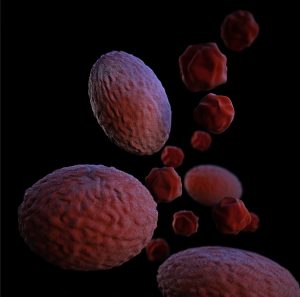#ThursdayThoughts
As promised, each Thursday, we will now offer you a piece of educational, science, or research related information. The purpose of our #ThursdayThoughts post is to share with you fact-based content that can enlighten and assist you on your fertility journey. Enjoy our post! Helping to Create New Beginnings….
Chlamydia Trachomatis Infection and Fertility
Chlamydia trachomatis infection is the most predominant bacterial sexually transmitted infection (STI). It can affect both men and women. If not detected and treated in a timely manner, chlamydia can cause future fertility issues; however, many women and men who have had this infection will not have any problems with fertility in the future. The bacteria are transmitted through sexual contact with an infected partner. The infection can also spread from an untreated mother to her baby during delivery. In 2018, the United States reported to the CDC approximately 1.75 million infections. Chlamydia is often known to be a ‘silent’ infection. This is due to the fact that most people with it do not present with any symptoms. The overall incidence of chlamydia infection are underestimated due to the asymptomatic nature of this bacteria. Approximately 75% and 50% of chlamydial infections are asymptomatic in women and men, respectively (1).
Some symptoms that women may experience include irregular vaginal bleeding, change in vaginal discharge, painful urination, or urinary frequency. Chlamydial infection in women can lead to pelvic inflammatory disease (PID), tubal factor infertility, ectopic pregnancy, and chronic pelvic pain (2). Chlamydia can cause inflammation of the upper genital tract which in turn can cause permanent damage to the fallopian tubes and other reproductive tissue. Women with a previous chlamydial infection have antibodies to chlamydia and represent approximately 25% of women with tubal factor infertility (3).
Men who are symptomatic may also have urethral discharge and dysuria. This infection can potentially be detrimental to their fertility. Infection of the testes and prostate can lead to deterioration of sperm and may cause sperm DNA damage. There also may be an association with fragmented DNA and history of recurrent pregnancy loss (4). Men with a history of infection may have lower sperm counts (5).
Chlamydia can be treated and cured with either a single dose of Azithromycin 1000mg or Doxycycline 100mg for seven days. This infection can be detected through a genital swab or urine sample for both men and women. Once chlamydia is treated, people may become infected again if they have sexual contact with an infected person. Testing for chlamydia should be done after unprotected intercourse or if having any of the aforementioned symptoms. Early detection and treatment may reduce the risk of any issues with fertility in the future.
For more information regarding tubal factor and male factor infertility, please call 808-545-2800 to schedule an appointment with one of our physicians, or visit our website at https://www.ivfcenterhawaii.com/.
- Jeffrey F. Peipert, MD, PhD, Tessa Madden, MD, MPH, Robert L. Barbieri, MD, Alana Chakrabarti, MD., Long-term complications of pelvic inflammatory disease, UpToDate.
- https://www.cdc.gov/std/chlamydia/stdfact-chlamydia-detailed.html.
- Kelly A. Cunningham, Kenneth W. Beagley, Male Genital Tract Chlamydial Infection: Implications for Pathology and Infertility, Biology of Reproduction, Volume 79, Issue 2, 1 August 2008, Pages 180–189, https://doi.org/10.1095/biolreprod.108.067835.
- Angelopoulou R, Plastira K, Msaouel P. Spermatozoal sensitive biomarkers to defective protaminosis and fragmented DNA. Reprod Biol Endocrinol. 2007;5:36. Published 2007 Aug 30. doi:10.1186/1477-7827-5-36.
- Paivi Joki-Korpela, M.D., PhD., Niina Sahrakorpi, M.D., Mervi Halttunen, M.D., PhD., Helja-Marja Surcel, PhD., Jorma Paavonen, M.D., Ph.D., Aila Tiitinen, M.D., PhD, The role of Chlamydia trachomatis infection in male infertility, American Society for Reproductive Medicine, Volume 91, Issue 4, Supplement, April 2009, Pages 1448-1450, https://www.fertstert.org/article/S0015-0282(08)01412-X/fulltext.
